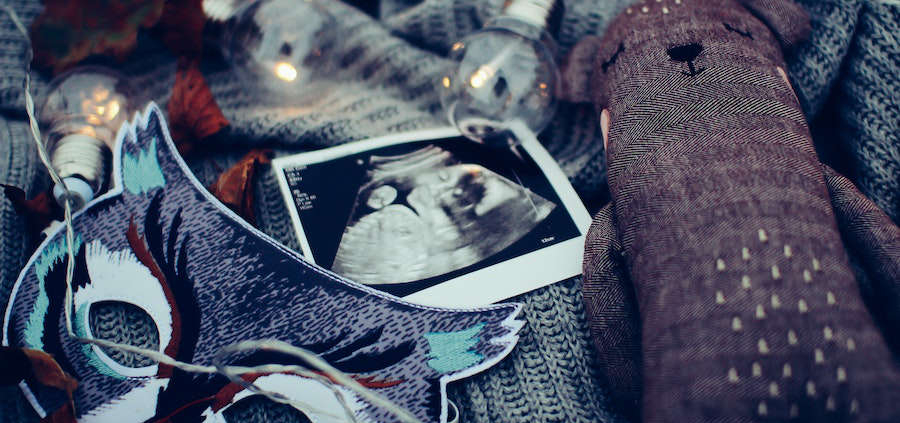Of Morals and Life by Julie A. Ferraro
As we wrote in our brief introduction to Eileen McCafferty DiFranco’s essay “The Burdens of Motherhood,” “The Supreme Court’s decision in Dobbs v. Jackson Women’s Health Organization to hold that the Constitution does not confer a right to an abortion, overruling Roe v. Wade (1973) and Planned Parenthood v. Casey (1992) and returning the authority to regulate abortion to the states, has been one of the most divisive rulings of the last half century.”
The ruling has generated a range of responses among Catholic organizations and media, from Call to Action’s statement questioning the surveillance mechanisms of anti-abortion legislation, to the Association of US Catholic Priests’ prayerful call “for pro-life legislative action to provide health care, family leave and child care for those in need,” to the reactions of readers of the National Catholic Reporter, showing that opinions on the issue are often far more nuanced than the standard coverage would have us believe.
One of the most cogent statements came from the “women-led, person-centered” Catholic advocacy organization NETWORK. It includes a series of questions about the ramifications of Dobbs v. Jackson “from [the] perspective of pursuing justice and the common good through federal policy.” In the essay below, Julie A. Ferraro touches on, among other things, the first of these questions: “Will state and federal legislatures now introduce and pass a groundswell of policies to offer a robust social safety net of resources for all women and families that allow everyone to thrive?” “Church leaders must provide more than mere lip service to matters deemed ‘pro-life,'” Julie writes. “If a woman is pregnant, she should be provided with adequate medical care and supported through her struggles long after the child is born”—Ed.
 The media has been reporting extensively on reactions to the U.S. Supreme Court overturning Roe v. Wade in a decision released June 24. Communications personnel working for religious communities and church organizations have been putting in some serious overtime, I’m sure, deciding how—and if—to issue their own statements about this historic event.
The media has been reporting extensively on reactions to the U.S. Supreme Court overturning Roe v. Wade in a decision released June 24. Communications personnel working for religious communities and church organizations have been putting in some serious overtime, I’m sure, deciding how—and if—to issue their own statements about this historic event.
Here’s mine.
I, personally, can’t agree with those who speak about abortion being a woman’s “right.” There’s been a lot of talk lately about “rights” (including about firearms). But with rights come responsibilities.
That’s where things get sticky.
When two people, gripped by very strong emotions (not to mention hormonal reactions) create a child, they must both take responsibility for their actions. The man must not think he can simply walk away from the situation. If he does, he is not only irresponsible, but a childish coward. It’s not like breaking a toy, throwing it in the trash, then going off to buy a new one.
The woman should take responsibility, too. Turning to a pill that expels the fetus, or visiting an abortion clinic is an easy “out” for an impulsive action, but aren’t human beings supposed to be able to control their impulsive actions in the first place?
This is where the church, and parents, enter the picture. Both must be responsible for teaching children to respect themselves and others, to gain an understanding of their own thoughts and feelings and how to control them, and to take responsibility for their actions. This can be done with love, kindness, and wisdom, but it must be done!
On the part of the church, priests must not rant from the pulpits about sin and punishment. They need to bring concerns about modern life—and how an informed faith can deal with the struggles—to those in the pews.
Church leaders must provide more than mere lip service to matters deemed “pro-life.” If a woman is pregnant, she should be provided with adequate medical care and supported through her struggles long after the child is born. That could include training for a job that will provide sufficient income to raise her child. It takes a village, as the saying goes, and that village should start with the church.
For parents, the fear of talking with youngsters about “the facts of life” must be eliminated. But long before such conversations are ever held, the children should be taught responsibility. If milk is spilled, they should learn to clean up the mess. If they have a fight with a classmate or neighbor, they should be encouraged and led through the process of apology and reconciliation.
It may seem intrusive on the child’s part to have parents ask who their friends are or where they are going, or checking their rooms or backpacks. The very fact that the brain is not fully developed until after the teenage years necessitates parents keeping an eye on what their children are doing, despite protests over privacy.
No child needs a cell phone before the age of 16—when they start driving, in case of emergencies. The use of the internet should be strictly monitored by parents, too—and teachers in the classroom, if computers are required for assignments. Having a social media account “to keep in touch with friends” is a convenient excuse. Children who want to interact with friends can go outside to play, or to a local park, with parental supervision.
It is sad to say, but parents even need to protect their children from some in the church who have less than honorable intentions.
Children should be raised with the self-esteem necessary to value themselves as God’s creation, so when others taunt them or deride them, they don’t feel a need to “prove their love,” or to prove anything to anyone. It is all about parents taking responsibility, and teaching their children responsibility. And, of course, mercy and forgiveness.
Not all who seek abortion are teens who have made a mistake. In a world where adults are encouraged to engage in shallow relationships, or decide not to have children, reliance upon artificial birth control abrogates much of the responsibility for their actions.
When those pills or devices fail, however, the resulting pregnancy creates complications. Again, it’s often a question of self-esteem: what need is there, after all, to hang out at bars and seek the validation of others to make oneself feel better? It’s also about morals, which, if not instilled during childhood, are difficult to acquire as an adult. The notion “think before you act” cannot be emphasized enough.
The decision to terminate a pregnancy cannot be solely about convenience, or the prospect of “swelling up like a balloon” over the course of nine months. Personal vanity cannot play a role in determining whether a child should be born.
As someone who has been on both sides of the adoption process, I may have an understanding about pregnancy that others lack. My biological mother gave me up for adoption at birth—a plan that had nothing to do with the deformity with which I was born (which, fortunately, was mostly corrected with a couple surgeries as a child). I learned only in recent years that this same woman had given up two other children for adoption (thanks, Ancestry.com), keeping the fourth of her offspring to raise as a single mother. She never married. She died before I discovered all this, so I never had a chance to ask her about what could be viewed as rather disturbing behavior.
My adoptive parents, having been thoroughly “vetted” by Catholic Charities in northern Indiana, sent me to Catholic schools while we lived in relative middle-class comfort. My adoptive mother, however, turned out to be a violent alcoholic who, even after she stopped drinking, took out her frustrations in physical ways. She died of cancer in 1989.
In raising my own family, the decision was made to give one child for adoption to a couple who could not bear their own children. This was not because I wasn’t married—at the time, I was—but because our financial situation made the future prospects of that little angel rather bleak. For me, it wasn’t a painful severance of the maternal bond. After she was born, I held her and, the next morning, bottle-fed her and sent her off with a blessing. I trusted she would be given love and comfort, nurtured into the woman she is today.
In the long run, abortion would not be such a contentious subject if the church, and parents, acted responsibly in the raising of children, and those same children learned to do likewise throughout their lives. ♦
Julie A. Ferraro has been a journalist for over 30 years, covering diverse beats for secular newspapers as well as writing for many Catholic publications. A mother and grandmother, she currently lives in Atchison, Kansas. Her column, “God ‘n Life,” appears regularly in Today’s American Catholic.





Leave a Reply
Want to join the discussion?Feel free to contribute!